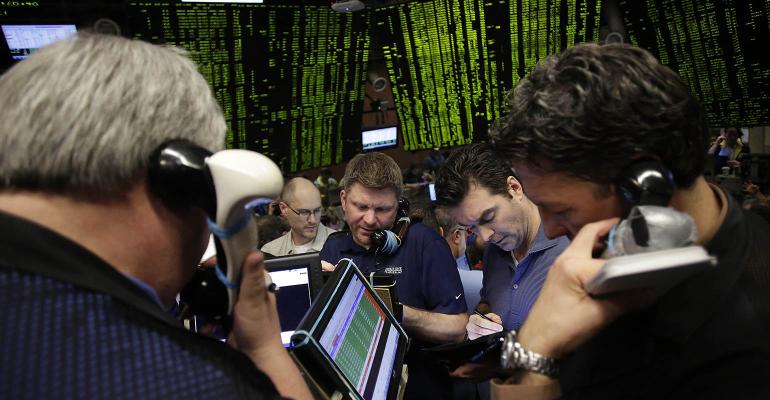(Bloomberg) -- Traders with knowledge of upcoming merger and acquisition deals used ETFs consisting of target firms’ stocks to mask $2.75 billion of insider trading, according to an academic paper.
Findings show “significant levels” of such transactions known as shadow trading over their 13-year sample period of all US companies and ETFs, according to a paper from academics at the Stockholm School of Economics in Riga and the University of Technology, Sydney. Their results were obtained by observing statistically notable increases in volumes in the five days prior to M&A announcements in 3% to 6% of same-industry ETFs on average.
“These ETFs, which are the most likely to be traded by insiders if shadow trading does occur, have significantly higher levels of abnormal trading than various randomized control samples of other ETFs and other trading days,” Elza Eglite, Dans Staermans, Vinay Patel and Talis Putnins wrote in the study, dated Jan. 26.
The paper, which is titled Using ETFs to Conceal Insider Trading, says that such activity amounted to a volume of $212 million per year from 2009 through 2021.
“Our estimates of the amount of shadow trading in ETFs provide a lower bound given that we only examine shadow trading prior to M&As and not prior to other price-sensitive news announcements,” the authors wrote.
The results showed the phenomenon was most prevalent in the health care, technology, and industrials sectors. Shadow trading occurs in 2% to 12% of exchange-traded funds within these three sectors, the authors said.
Insider Trading Is Bad, Benign and Bone of Contention: QuickTake
While single-stock insider trading has become easier to spot, trading related securities is more dubious. Market participants have been finding new and more sophisticated ways recently to avoid scrutiny by regulators. The paper highlighted the only prosecution case of its kind to date, when a Medivation Inc. employee was charged by the Securities and Exchange Commission for buying shares of Incyte Corp. after learning Pfizer Inc. was about to acquire his employer in 2016.
The charges shows “regulators have started to monitor and enforce against shadow trading in related stocks,” they wrote. “Our paper suggests law enforcement agencies should also investigate trading in other related securities such as ETFs.”





